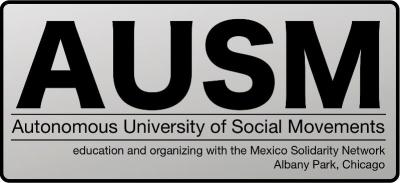 Certain eyesores are becoming increasingly common in Albany Park, an immigrant neighborhood on Chicago's northwest side. Boarded-up houses stand next to newly-renovated condominiums whose high rents push out former residents. Overcrowded classrooms provide less and less ESL, music, cultural, and physical education. Difficult jobs at all hours of the day don't pay overtime or give benefits. People with a chronic cough or ache don't have the luxury of taking time off or getting treatment.
Certain eyesores are becoming increasingly common in Albany Park, an immigrant neighborhood on Chicago's northwest side. Boarded-up houses stand next to newly-renovated condominiums whose high rents push out former residents. Overcrowded classrooms provide less and less ESL, music, cultural, and physical education. Difficult jobs at all hours of the day don't pay overtime or give benefits. People with a chronic cough or ache don't have the luxury of taking time off or getting treatment.
The community-building work at the Centro Autónomo is built on a bold assertion: that working-class immigrants, many of them women, and master's students can collaborate in a project to build education, housing, health and work projects that don't rely on the government or wealthy donors. Community members do this by questioning while they walk- reflecting on the project through master's classes, community assemblies, and everyday conversations while they continue to build it.
Classes include:
*Popular education theory and practice
*Issues in community organizing, including race/gender/class dynamics, cross-cultural communication, leadership, and challenges facing immigrant communities
*Political analysis, including power analysis, anti-capitalist perspectives, local power structures, and political parties
Each student designs and implements a community practicum, which might include:
*Working with women's cooperatives dedicated to food preparation, cleaning services or day care
*Developing community responses to police harassment, sub-par public education, foreclosure and eviction, wage theft, or the lack of cultural spaces for youth
*Developing popular education curriculum for teaching ESL or bilingual adult high school classes
*Coalition-building across the city within the immigrant rights, foreclosure resistance, and labor movements
An optional eight week summer program in Mexico introduces students to Mexico's most important and vibrant social movements, including indigenous movements in Chiapas, occupation and housing movements in Mexico City, and campesino movements in Tlaxcala.
Graduates receive a fully-accredited degree from the University of Wisconsin-Milwaukee.
For more information, see AUSM and the University of Wisconsin-Milwaukee website.
There is still time to apply! Click here to begin.
Go to the GEO front page

Add new comment